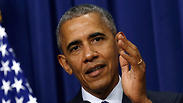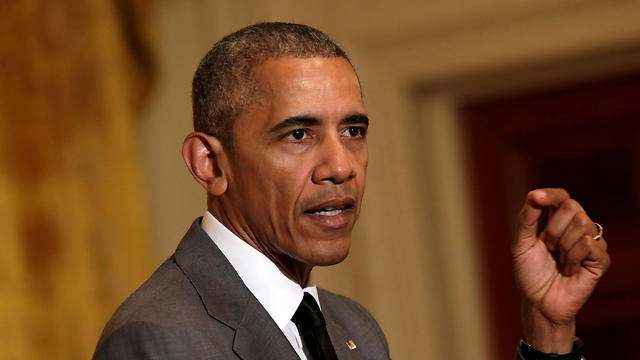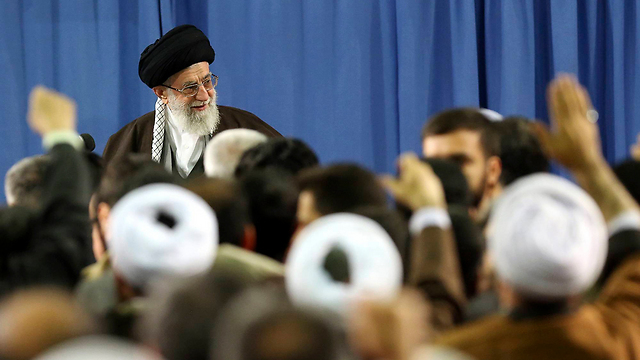
Obama claims Iran Deal working, Israel and Iran disagree
US president Obama claims that the Iranian Nuclear Agreement is working, while the Iranians say they haven't seen the changes promised in the agreement; meanwhile, after Obama says that Israel acknowledges that Iran is holding to the deal, the Ministry of Defense has come out with a statement reaffirming its stance against the deal, as has the Prime Minister's office.
The Israeli Defense Ministry published its reaction to the statement right before the Sabbath started, saying "the Israeli security services believe that the agreements only have value if they are based on existing reality, and that they hold no value if the reality on the ground is completely different than the reality envisioned in the agreements."
The response continued, saying "the Munich agreement didn't stop World War Two or the Holocaust. (The agreement's -ed) basic premise - that Nazi Germany could be a partner in some form of agreement – was wrong, and world leaders at the time ignored Hitler's and other Nazi leaders' blunt remarks (regarding the Jews -ed)."
"This is the same regarding the agreement with Iran, which itself explicitly and publicly announces that its goal is to destroy the state of Israel. A US State Department document published this year states that Iran is the chief state sponsor of terror world wide," the response said. "Therefore, the Israeli security establishment, the nation of Israel, and many other nations around the world, understand that agreements like those signed between the world super powers and Iran aren't helpful. They only damage the uncompromising struggle against nations which support terror."
The fact that the Ministry of Defense responded to Obama's statements is unusual, as the agreement is primarily political in nature.
After the Ministry of Defense sent it's statement, the Prime Minster's Office sent a softer reply, saying "Israel's position on the Iran Nuclear Deal remains as it was. However, Prime Minister Netanyahu still believes that Israel has no greater ally than the United States. As Netanyahu said in his UN speech last year, it's important that those who were for the agreement and those who were against it cooperate to fulfill three goals; to make sure that Iran doesn't violate the agreement, to deal with Iran's regional aggression, and to dismantle Iran's global terror network. The Prime Ministers expects these goals to become part of shared policies, and that the alliance between the United States and Israel only grow stronger not only with President Obama, but also with his successor."
Obama's statements come after the Iranian leadership expressed disappointment with the agreement on Tuesday, something which many believe to be the first cracks to show in Iranian trust in their agreement. Iranian leader Ali Khomeini said that the average Iranian hasn't seen the benefits they had hoped to see following the agreement.
"Were the sanctions not removed in order to change the lives of the people?'' Khomeini asked. "Do we see any tangible changes in the lives of the Iranian people after six months (since signing the agreement –ed)?"
Khomeini, who has the final say for any policy decision in the Islamic Republic, said that the US and other countries continue to sabotage Iran's economic relations despite the agreement. He said that Tehran won't agree to any more talks with Washington due to alleged US violations of the agreement. Khomeini has previously rejected additional negotiations with the US.
Iranian President Hassan Rouhani made a statement on Wednesday saying that the superpowers have yet to fulfill their side of the nuclear agreement and that they are attacking Iran's economy.
"If the rest of the parties involved would have held up their side of the agreement, our situation would be a lot better," Rouhani said.
He was also quoted as saying that Iran is still unable to access its frozen assets abroad, despite the fact that it is now able to export more natural gas and have access to the international banking system. He then said that the US Congress, Israel, and other countries in the Middle East have made it difficult to implement the agreement.


















